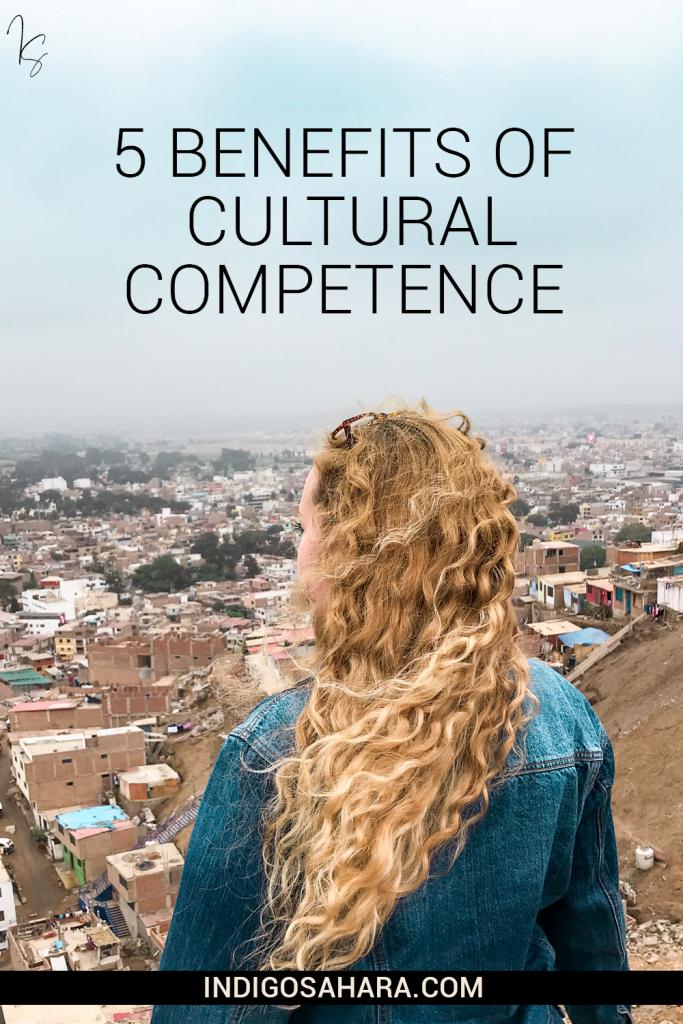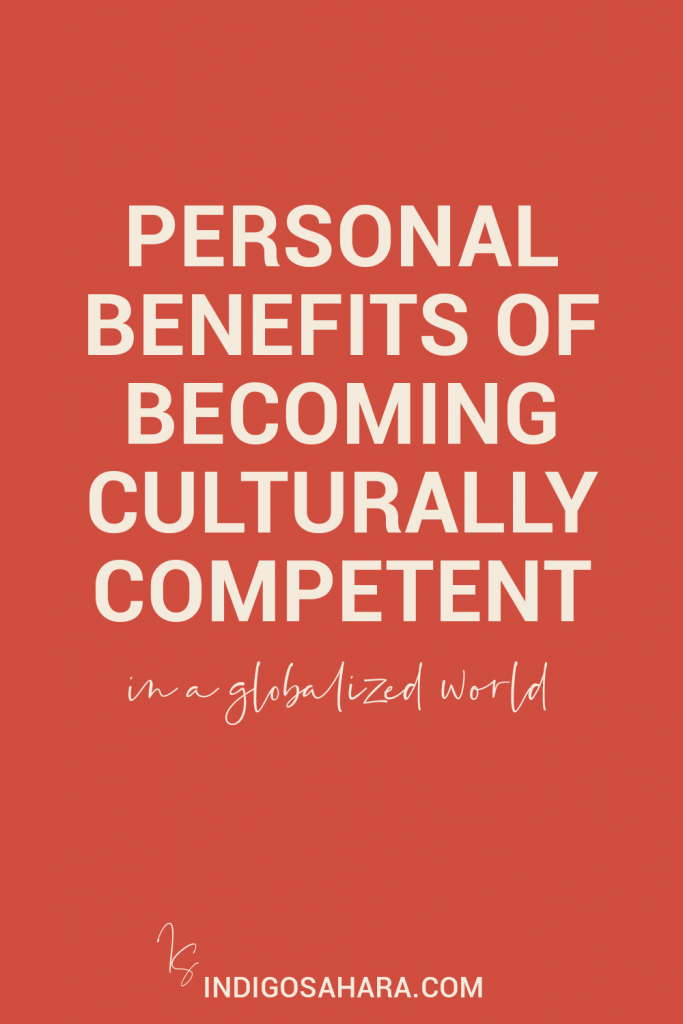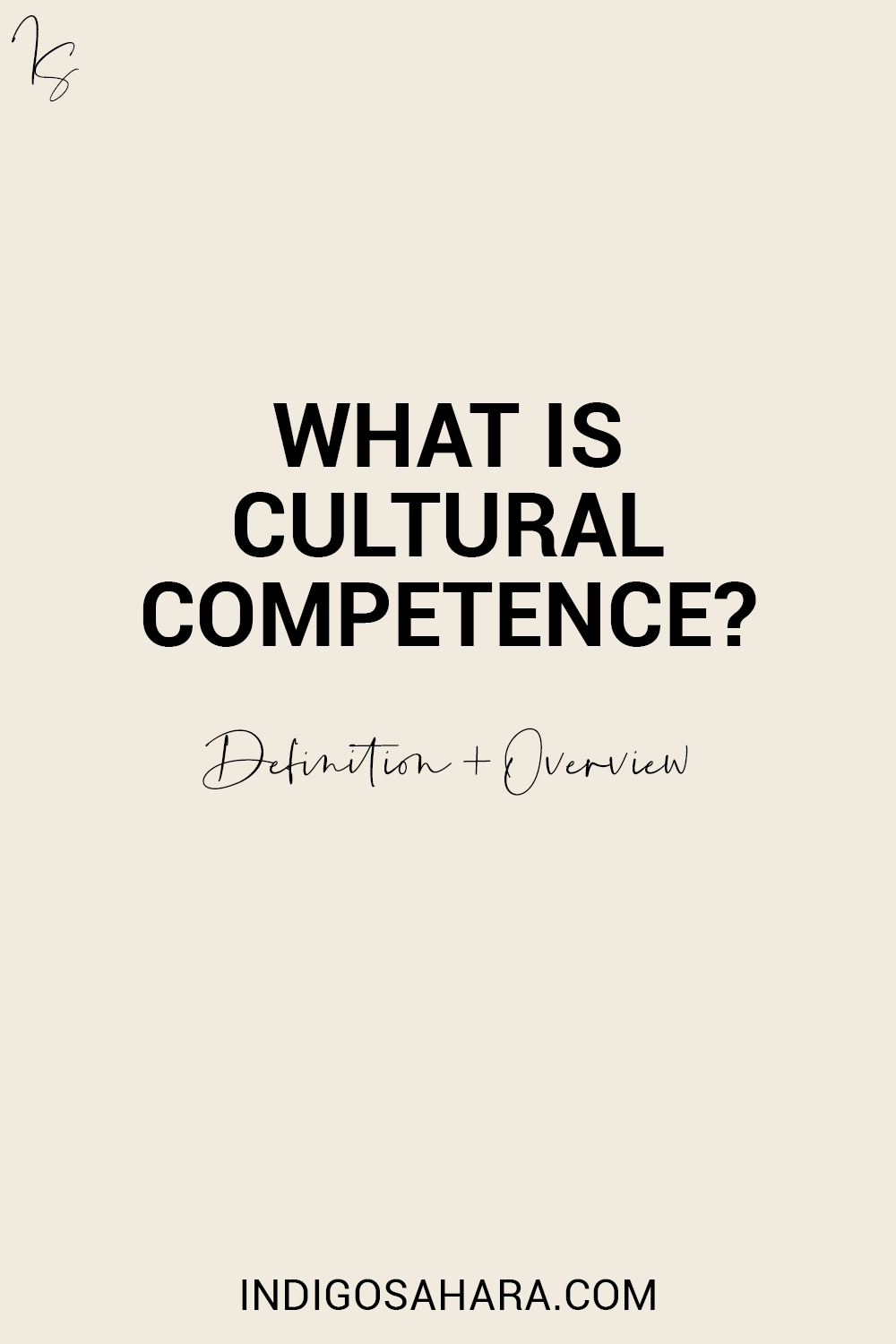
Over the past decade, we have seen the conversation of culture, cultural competence and cultural diversity grow exponentially. However, between experiences of cultural injustice, cultural appropriation and redefining patriotism, discussing the benefits of cultural competence has somehow begun to trigger feelings of a burden rather than of excitement or appreciation.
Before you roll your eyes and completely dismiss the idea of becoming culturally competent, know that there are, in fact, personal reasons to become culturally competent.
Here are the 5 personal benefits of cultural competence:
1. Job security.
In this day and age, you need cultural competence on your resume.
With a steady increase in globalization, companies will soon only be hiring individuals truly fit to work in a diverse environment. Large corporations, small businesses, healthcare providers, educators and freelancers alike are beginning to recognize the vitality of cultural competence.
With globalization comes unavoidable cross-cultural communication. With cross-cultural communication often comes misunderstandings, frustration and progress-less work.
Cultural competence allows you to communicate cross-culturally effectively, thus reducing misunderstandings and transforming you into a desirable, efficient, profitable employee.
2. Your work will become more efficient and effective.
As stated, when communicating with other cultures, conversations can quickly be misinterpreted and misunderstood. This leads to a variety of negative scenarios: task incompletion, task completion delay, taking offense, accidentally offending someone else, losing respect, losing authority and the list continues.
Tension then builds and effectively blocks work progress, leaving you and your team feeling unproductive and hopeless.
Cultural competence breaks the cycle of inefficiency by removing the barrier of communicating cross-culturally and propelling you to accomplish the vision at stake.
Even if you work in a monocultural environment, you were still raised in a different family with different peers from your coworkers. So, becoming culturally competent can help you avoid unnecessary misunderstandings here, too.
3. You gain control over your actions, reactions and emotions.
Nothing screams “freedom” like being able to recognize your culturally rooted emotional reactions that you didn’t even know existed.
Yes, that’s right. Every single action and reaction we take are constructs of (1) our conscience morality and (2) our home culture. We all have a conscience, but the ways in which we carry out our conscience are majorly influenced by how others around us do so.
Once you are able to recognize these cultural reactions, you can step back on the onset of a negative emotion (anger, frustration, hurt, fear, etc.) and ask yourself if you’re reacting to a moral issue or a cultural difference.
4. People will trust you more (inside and outside of work).
Trust is the foundational building block to essentially every aspect of life. Without some level of trust, no healthy relationships could exist, no products/services could ever be sold and functioning communities would cease to exist.
Mutual trust is imperative to survival.
Trust is one of the major benefits of cultural competence. The more you understand others, the better you can communicate with them. The better you can communicate with others, the less likely you are to accidentally frustrate or offend them.
The less frustration and offense, the more trust.
5. You become more persuasive.
Whether you’re pitching a huge corporate partnership in front of a panel of CEOs or just trying to convince your husband to do the dishes, persuasion is another critical element of everyday life.
We all know from high school English class that good rhetoric is a key component of a persuasive argument. What does good rhetoric consist of?
Common ground and an appeal to the audience.
So, what does good rhetoric have to do with cultural competence?
Cultural competence gives you the ability to better understand yourself in relation to other people. This means cultural competence gives you the ability to discover and communicate common ground in a way that appeals to your audience.
Therefore, cultural competence makes you more persuasive.
I won’t lie. Becoming culturally competent takes commitment, patience and practice, but the rewarding benefits of cultural competence prove worthy.
To begin your journey to become culturally competent today, subscribe below and be notified when new relevant articles are published.









I particularly like “learn to be persuasive”. Perhaps because I’m studying law but you’ve written a brilliant piece, well done!
Haha! Thank you so much for your kind words. I’m so glad it resonates.
Great post! Cultural competence is so important not just at work but for our own personal self-development.
Exactly, thank you! Sometimes we get so caught up in the world around us that we forget how cultural competence impacts our personal growth, too.
I especially liked the last one about being more persuasive! Great note there, I definitely think that’s useful.
Absolutely, thank you! It truly goes to show how important cultural competence is in our own lives, too. Doesn’t it?
Very insightful! And you definitely know how to apply your accumulated knowledge, too, as this blog post is 100% positively persuasive <3
In March, I read a real page-turner on the topic at hand. It’s called The Culture Map by Erin Meyer. If you haven’t read it yet, I can truly recommend it.
Love, Susanne
Thank you so much, Susanne!
I actually just recently read “The Culture Map” as well — brilliant piece. I truly admire Meyer’s work. She also has a personality test you can take online that tells you where you lie on all of the culture mapping spectrums (persuasion, task/relationship-orientation, time-orientation, etc.). It’s super insightful. I definitely recommend taking it!
Yes, cultural competence is very important work. Glad you are sharing this in the world!
Absolutely. It can be challenging, but it’s very important and worthwhile. Thank you for your kind words!